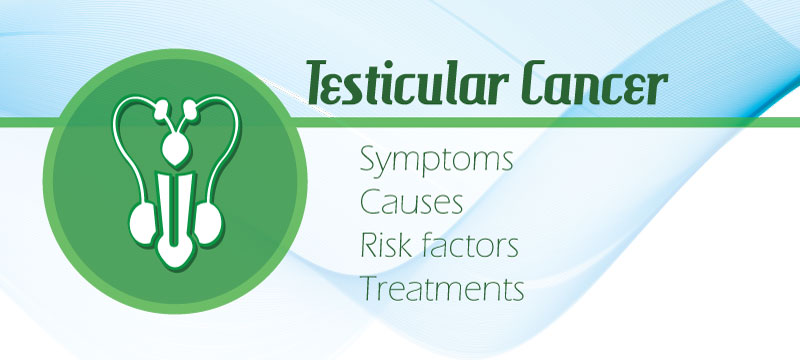There is a pervading belief that testicular cancer only occurs when a man is advanced in years. In fact, there are many cases of middle-aged and even young men in their early twenties who have had to battle with this disease. Testicular cancer refers to cancer that forms in tissues within the testis. There are two main types, Seminomas, which are sensitive to radiation and spread slowly and non-seminomas, which are known to grow and spread quickly.
What Are the Signs and Symptoms of Testicular Cancer?
An enlarged scrotum, swelling or a lump on one of the testicles are some of the early signs of the disease. These signals are quite often accompanied by aches in the scrotum and lower abdomen. It’s important to note that some men may not have any symptoms during the early stages.
Persistent lower back pain might be a sign of later-stage testicular cancer because as it progresses the next area it commonly spreads to are the lymph nodes in the posterior part of the abdomen.
If you have been diagnosed with testicular cancer and you start to experience chest pains or frequent cases of shortness of breath please get these conditions checked out immediately, they could be signs that cancer has spread to the lungs.
The main symptoms of testicular cancer are:
- Pain in the lower abdomen region, back, or in the groin on an ongoing basis
- A heavy feeling in the scrotum
- Discomfort in a testicle or in the scrotum
- A lump or mass in either testicle
- Swelling of the testicle
- Extra fluid collecting in the scrotum
Causes and Risk Factors for Testicular Cancer
As is the case with many diseases our ethnic background can be a major factor. White males are 4 times more likely be at risk. If any of your family members have been diagnosed with testicular cancer in the past it would be best that you get checked. If you have had to deal with this condition in the past regularly monitor your health as there could still be a possibility that it will return. Undescended testicles can also play a role in developing the disease. You are six times more likely to be at risk If the testicles have not descended by age 13.
Recommended Treatments for Testicular Cancer
For further information on available treatments, please see our recommended cancer treatment page.

